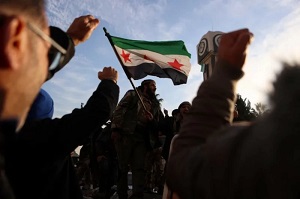Jordanian narrative and identity: The rootedness of the past and the challenges of the future - By Hasan Dajah, The Jordan Times
The national narrative of any state is the general framework that links the past, present, and future, and provides people with a sense of belonging and continuity. In the Jordanian case, the national narrative was formed from intertwined historical, political, social, and cultural interactions, which made Jordanian identity a cohesive and rooted entity based on history, legitimacy, and geographical specificity, while simultaneously open to diversity and development. Jordanian identity did not form in a vacuum; rather, it interacted with its regional environment and its major transformations. Since its founding, the Jordanian state has succeeded in preserving and strengthening the unity of its national identity in the face of various challenges.
The Jordanian national narrative began with the establishment of the Emirate of Transjordan in 1921 under the leadership of the late King Abdullah I bin Al-Hussein, who came to the region bearing the legacy of the Great Arab Revolt and a national vision based on the principles of Arab renaissance and unity.
This beginning marked the starting point for a national project based on the religious and historical legitimacy of the Hashemite leadership, which was able to build an institutional state despite the geographical and political challenges in a volatile region. With full independence in 1946, Jordan entered a new phase of consolidating sovereignty and strengthening national identity, followed by the unification of the two banks of the Jordan River in 1950, which embodied a unified political and social vision. The decision to sever legal and administrative ties with the West Bank in 1988 affirmed respect for the Palestinian people's right to self-determination. The celebration of the state's centennial in 2021 marked a pivotal national moment, reflecting a century of steadfastness, construction, and cohesion in the face of internal and external challenges.
Jordanian identity is based on a set of fundamental pillars, most notably the pivotal role of the Hashemite leadership, which enjoys religious and historical legitimacy and contributed to building the state and consolidating the values of stability and moderation. Jordan's geographical location also plays a significant role in shaping its identity. It lies at the crossroads of civilizations and history between Asia and Africa, giving it a significant role in regional and international interactions. This location has led to demographic and cultural interactions that reflect the rich diversity of Jordanian society, made up of Transjordanian tribes, Jordanians, Circassians, Chechens, and other components of the national social structure. Together, they form a cohesive canvas of national unity based on Jordanian citizenship and identity.
Since its inception, the Jordanian state has enshrined the concept of equal citizenship as a fundamental foundation of Jordanian national identity. It has sought to build a solid social contract based on equal rights and duties for all citizens, regardless of their origins or backgrounds.
This approach has strengthened a sense of shared national belonging, while respecting the cultural and religious pluralism that characterizes Jordanian society, including its tribal, ethnic, and religious diversity. Modern Standard Arabic also played a pivotal role in unifying cultural and educational discourse, alongside the local dialect and Jordanian customs and traditions, which formed a common denominator uniting citizens under a single cultural umbrella. Within this framework, educational and media institutions played a pivotal role in consolidating the national narrative through curricula and media programs that promote values of belonging and loyalty and convey Jordan's historical and contemporary experience to successive generations. This contributed to preserving national identity and strengthening its cohesion.
Despite the apparent cohesion of the Jordanian national narrative, it faces a range of complex challenges at both the internal and external levels. Prominent among these challenges are the demographic and economic pressures resulting from repeated waves of refugees from neighboring countries, which have placed significant strains on resources and infrastructure. Globalization and digital technology have also created alternative cultural environments that have influenced youth awareness and their expression of identity.
This calls for updating the national discourse to keep pace with new transformations without compromising national constants. Add to this the political and regional challenges, foremost among them the Palestinian issue, the political situations in Syria and Iraq, and external pressures on Jordanian policies, which makes it necessary to maintain the independence of national decision-making within a narrative based primarily on Jordan's interests.
In the face of these multiple and complex challenges, there is an urgent need to renew and develop the Jordanian national narrative in a dynamic manner that keeps pace with local, regional, and international transformations and reflects the spirit of the times without compromising national constants. This renewal must be comprehensive and accommodate the cultural and social diversity within Jordanian society, while preserving the unity of belonging and identity.
This can be achieved by developing educational curricula to be more interactive with real-life issues and promoting the concepts of national identity and active citizenship in a modern, balanced manner. Furthermore, the opportunity must be opened for young people to actively participate in public and political life, as they are the bearers of the future and creators of the new narrative. It is also important to reformulate media and cultural discourse to express national values in a contemporary and attractive language.
Equally important is highlighting historical and contemporary national symbols and consolidating the rule of law and justice, thus enhancing confidence in institutions and deepening citizens' sense of belonging and engagement in the national project. The Jordanian narrative is not merely an official story; it reflects a national experience rich in challenges, patience, and successes. It is in constant need of review and updating to remain capable of expressing the aspirations of Jordanians in the present and future. Jordanian national identity represents the most important element of strength in light of rapid changes.
It is the first line of defense for independent decision-making, the unity of society, and the continuity of the state. As the Jordanian state enters its second centenary, the need for a comprehensive national discourse emerges, one that combines heritage and modernity and strengthens Jordan's position as an independent state with a mission, identity, and standing in the region and the world.
Hasan Dajah is professor of strategic studies at Al-Hussein Bin Talal University
Latest News
-
 Latakia fires rage for sixth day as officials launch support campaign
Latakia fires rage for sixth day as officials launch support campaign
-
 Canada arrests four men in plot to form anti-government militia, seize land
Canada arrests four men in plot to form anti-government militia, seize land
-
 US revoking 'terrorist' designation for Syria's HTS
US revoking 'terrorist' designation for Syria's HTS
-
 Explosion in Gaza injures at least 16 'Israeli' soldiers, kills 2
Explosion in Gaza injures at least 16 'Israeli' soldiers, kills 2
-
 Massive explosion rocks weapons depot in Syria’s Idlib
Massive explosion rocks weapons depot in Syria’s Idlib